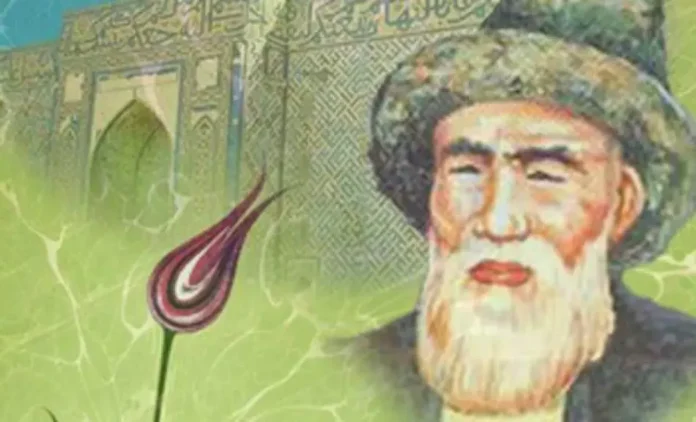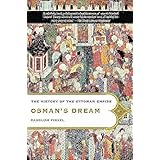| “Let those who know Yesevi wisdom hear it. Let those who hear do it, let them take a piece of Cevahir mine. Let those who do not hear longing. For those who say astağfirullah at dawn “ (Divan-ı Hikmet: 121) |
| “Those without love have no faith, O friends…” says Hoca Ahmed Yesevî (Divan-ı Hikmet: 84). |
| “If love is worth it, it will destroy the soul, if its skin touches love, its arrogance will ruin your self, if it is not Love, nobody will recognize you Ma’am, whatever you do, make me in love, O my Lord, love market is forbidden, commerce is forbidden there to fight for lovers other than you. Forbidden The world is forbidden for those who take the path of love Whatever you do, make me fall in love, O my Lord “ (Divan-ı Hikmet: 74-75, 137-8) |
| “If I explain the secret of love to the lovers, it is not enough, the friends will hit the mountain with his head on the mountain and be deluded Childish children, the house passes through the house, Kul Hodja Ahmed, do not sue without going through the essence Do not talk about “I am in love” in the public. , do not be unaware, friends who are unaware and the truth is not seen as a good” (Divan-ı Hikmet: 76, 78, 139, 141) |
| “The servants of the truth are dervishes, those who know the truth, those who fall in love with God, who have entered the path of truth, those who say Allah, followed the Erenler and passed away from property” (Divan-ı Hikmet: 99) |
Ahmed Yesevi (1093-1166). (Kazakhstan) Sufi mystic and poet from the city of Isfijab, now called Sayram. His poems in the form of stanzas gave messages of prayer and contemplation to the crowded Turkish nomads who had not converted to Islam until then. Ahmed Yasawi from Isfijap (Sayram) on the southern border of Kazakhstan was the leader of the Sufis. Yesevi showed that poetry had a much greater power than prose to evoke the deep emotions that lie at the heart of the Sufi message.
Ahmed Yesevi, born in Sayram in 1093, and died in 1166 in Hazrat-e Turkestan, (both cities now in Kazakhstan), was a Turkish poet and Sufi or Dervish who exerted a powerful influence on the development of mystical orders throughout the Turkish-speaking world. Yesevi is the earliest known Turkish poet who composed poetry in an early Turkish dialect, Chagatai.
He was a pioneer of popular mysticism, founded the first Turkish order, (the Yeseviye), that quickly spread over the Turkish-speaking areas. Yesevi had numerous students/followers in the region. His poems created a new genre of mystical folk poetry in Central Asia and influenced many Sufi/Dervish poets including ‘Attar, Rumi, Hafiz (who both knew Turkish) and Yunus Emre. The book of his poems, the Divan-e Hikmet (Book of Wisdom), consists mainly of gazels and murabbas (foursomes), Kosmos (robi’as srung together) and munajat (prayers).
Theosopher and poet. Ahmed-i Yesevî was born in a place called Sayram, which is seven kilometers far from Çimkent, in Kazakhstan today. His birth date is unknown. He died in 1166-67 in the town of Yesi in Turkistan. The word Yesevî means “coming from Yesi”. The cities Buhara in Transoxiana, and Sayram and Yesi in the east of Seyhun, where Hoca Ahmed Yesevî lived, had been taken into the borders of Islam a long time before he was born. Most of the dwellers of these cities were Turks with Islamic confession. However, a great part of Turks had not converted to Islam in that age yet.
The Turks living in the regions Sir-i Derya, Ilek and Fergana, where Yesevism would spread, were believers of different faiths such as Mazdeicism, Manichaeism and Sanavism. Muslim and non-Muslim Turks continuously waged war, and there was no unity among them. Hoca Ahmed Yesevî was born under these circumstances. He had an important role in spreading Islam among Turks, and thus, made great contributions to provide the unity among the Turks.
He spent his last years in hermitage. It is rumored that he made wooden spoons and ladles of wood to make a living. Timurlenk built a religious building with a tomb and a mosque on his grave in Yesi. Timurlenk was given the precursor of his future victories by Ahmed Yesevî in his dream. Thus, he built the building to thank Yesevî. In Turkey, the year 1993 was announced the year of Ahmed Yesevî.
Ahmed Yesevî is one of the most pre-eminent moral leaders in the history of Islam. His philosophy of morality is based on the belief and conception of disciplining the self. According to Yesevî, one should discipline and control his or her self, get rid of moral weaknesses, strengthen his or her will and keep it under control.
Ahmed Yesevî wrote poems called “hikmet” (wisdom), with syllabic meter, in order to spread Islam and enlighten people in the direction of Sufism. His poems are of didactic characteristic and in pure Turkish, therefore they became very popular among masses. His poems were collected in the book Divân-ı Hikmet (Divan of Wisdom).
Ahmad Yasawi 1093–1166) was a Turkic poet and Sufi, an early mystic who exerted a powerful influence on the development of Sufi orders throughout the Turkic-speaking world.
Yasawi is the earliest known Turkic poet who composed poetry in Middle Turkic. He was a pioneer of popular mysticism, founded the first Turkic Sufi order, the Yasawiyya or Yeseviye, which very quickly spread over Turkic-speaking areas. He was a Hanafi scholar like his murshid, Yusuf Hamadani.
Ahmad Yasawi made considerable efforts to spread Islam throughout Central Asia and had numerous students in the region. Yasawi’s poems created a new genre of religious folk poetry in Central Asian Turkic literature and influenced many religious poets in the following countries.
Yasawi turned the city of Iasy into the major centre of learning for the Kazakh Steppe, then retired to a life of contemplation at the age of 63. He dug himself an underground cell where he spent the rest of his life.
Turkish scholar Hasan Basri Çantay noted: “It was a Seljuk king who brought Rumi, the great Sufi poet, to Konya; and it was in Seljuq times that Ahmed Yasawi, another great Sufi, lived and taught. The influence of those two remarkable teachers has continued to the present.”
SOURCE: ‘BOOK OF WİSDOM’ (Divan-i Hikmet) by AHMED YESEVI
First Turkish Sufi Master Poet Translation & Introduction Paul Smith






















